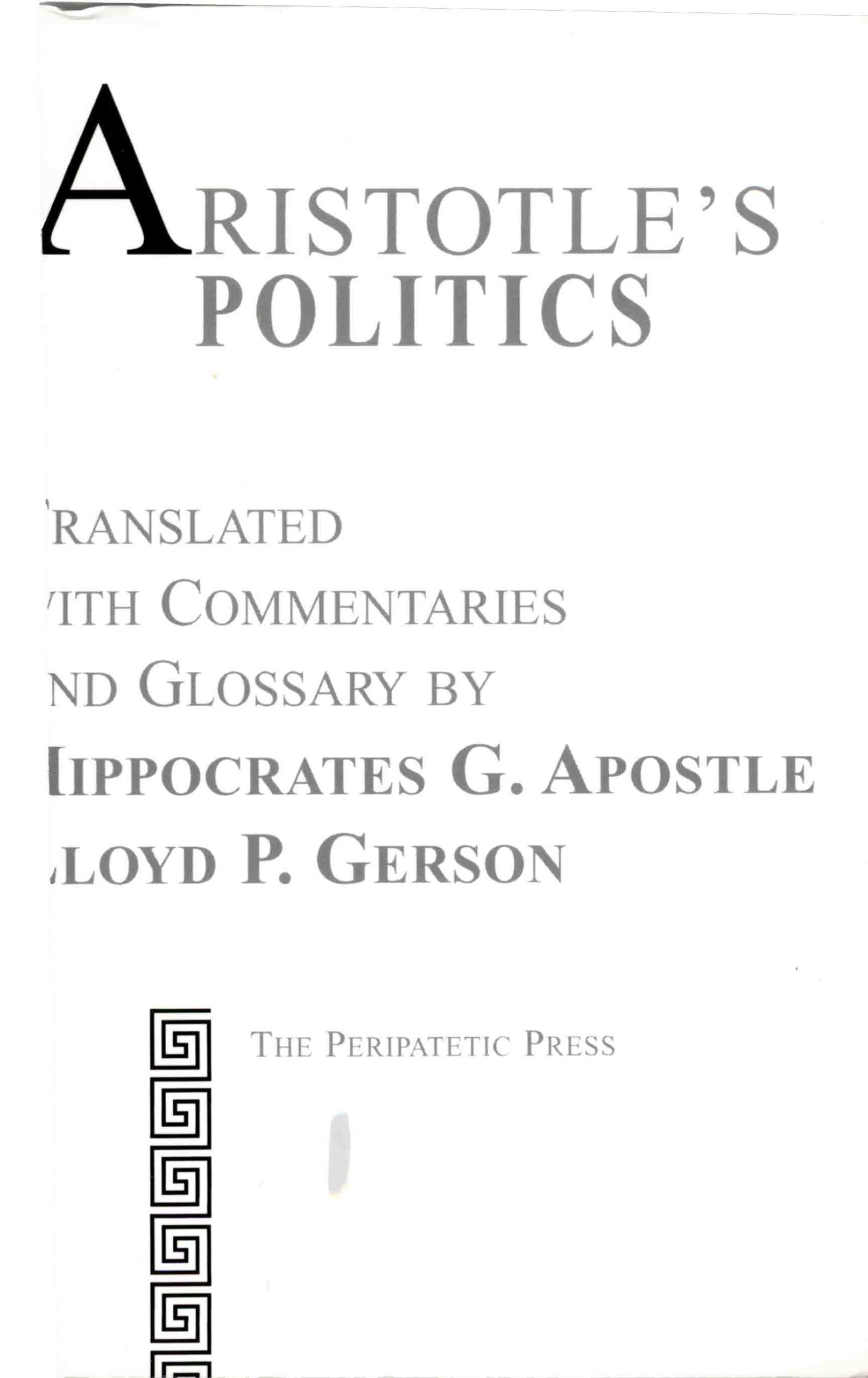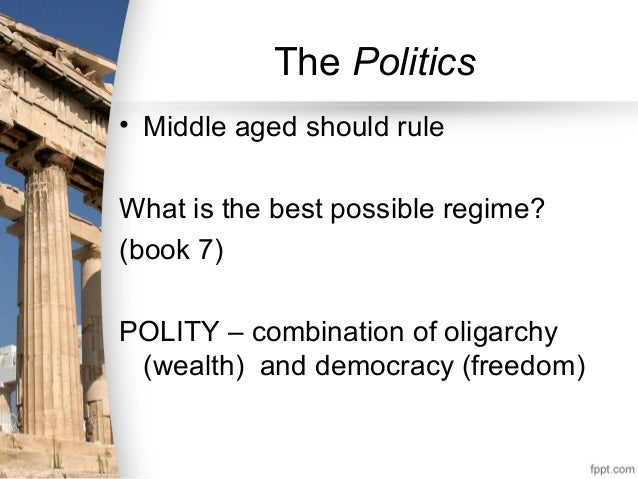

Though he spent most of his life and career in Athens, he was never an Athenian citizen, but more of a resident alien, with few political rights (he could not own property, for instance). He returned to Macedon for a while, in part to tutor a young Alexander the Soon-to-Be-Great, and then went back to Athens to found his own school, the Lycaeum. He attended Plato’s Academy in Athens for about twenty years. It may have been assembled from a set of shorter works on certain political themes, combined with or interlaced with his marginal notes or with the notes taken by those who attended his Lyceum lectures.Īristotle was Macedonian. There are various theories about the text we have. This evidence-based, descriptive approach to the study of politics was a hallmark of Aristotle’s method, and a contrast with the more idealistic from-first-principles approach of Plato, as seen for example in the Republic.Īs with the Nicomachean Ethics, the Politics is not a polished work as Aristotle would have written it for publication.

In addition to such documentation, Aristotle pursued a research project of collecting 158 constitutions of various city-states in order to examine them for their strong and weak points. The history of Greek city-states, their wars and intrigues and political churning, was well-documented. In the ancient Greek conception of politics, "administration should be democratic and law-making the work of experts", which is in contrast to modern liberal notions in which "e think… of law-making as the special right of the people and administration as necessarily confined to experts." Aristotle’s Politics is in part a course designed to train such experts to create or reform a set of laws. The title of Politics literally means "the things concerning the πόλις ( polis)", and is the origin of the modern English word politics. The end of the Nicomachean Ethics declared that the inquiry into ethics necessarily follows into politics, and the two works are frequently considered to be parts of a larger treatise-or perhaps connected lectures-dealing with the "philosophy of human affairs". Politics ( Πολιτικά, Politiká) is a work of political philosophy by Aristotle, a 4th-century BC Greek philosopher. Aristotle's comparative politics and theory, grounded in virtue ethics and natural philosophy


 0 kommentar(er)
0 kommentar(er)
